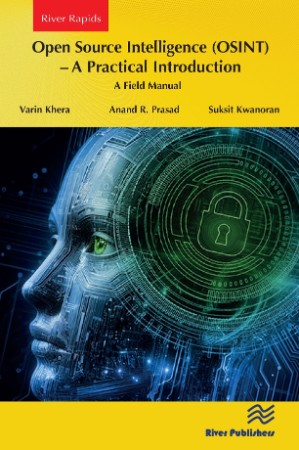Open Source Intelligence - A practical Introduction: A Field Manual - Varin Khera

pdf | 20.65 MB | English| Isbn:9781040301548 | Author: Varin Khera, Anand R. Prasad, Suksit Kwanoran | Year: 2024
Description:
This practical book introduces open-source intelligence (OSINT) and explores how it can be executed in different intelligence scenarios. It covers varying supporting topics, such as online tracking techniques, privacy best practices for OSINT researchers, and practical examples of OSINT investigations. The book also delves into the integration of artificial intelligence (AI) and machine learning (ML) in OSINT, social media intelligence methodologies, and the unique characteristics of the surface web, deep web, and dark web.
Open-source intelligence (OSINT) is a powerful tool that leverages publicly available data for security purposes. OSINT derives its value from various sources, including the internet, traditional media, academic publications, corporate papers, and geospatial information.
Further topics include an examination of the dark web's uses and potential risks, an introduction to digital forensics and its methods for recovering and analyzing digital evidence, and the crucial role of OSINT in digital forensics investigations. The book concludes by addressing the legal considerations surrounding the use of the information and techniques presented.
This book provides a comprehensive understanding of CTI, TI, and OSINT. It sets the stage for the best ways to leverage OSINT to support different intelligence needs to support decision-makers in today's complex IT threat landscape.
Open-source intelligence (OSINT) is a powerful tool that leverages publicly available data for security purposes. OSINT derives its value from various sources, including the internet, traditional media, academic publications, corporate papers, and geospatial information.
Further topics include an examination of the dark web's uses and potential risks, an introduction to digital forensics and its methods for recovering and analyzing digital evidence, and the crucial role of OSINT in digital forensics investigations. The book concludes by addressing the legal considerations surrounding the use of the information and techniques presented.
This book provides a comprehensive understanding of CTI, TI, and OSINT. It sets the stage for the best ways to leverage OSINT to support different intelligence needs to support decision-makers in today's complex IT threat landscape.